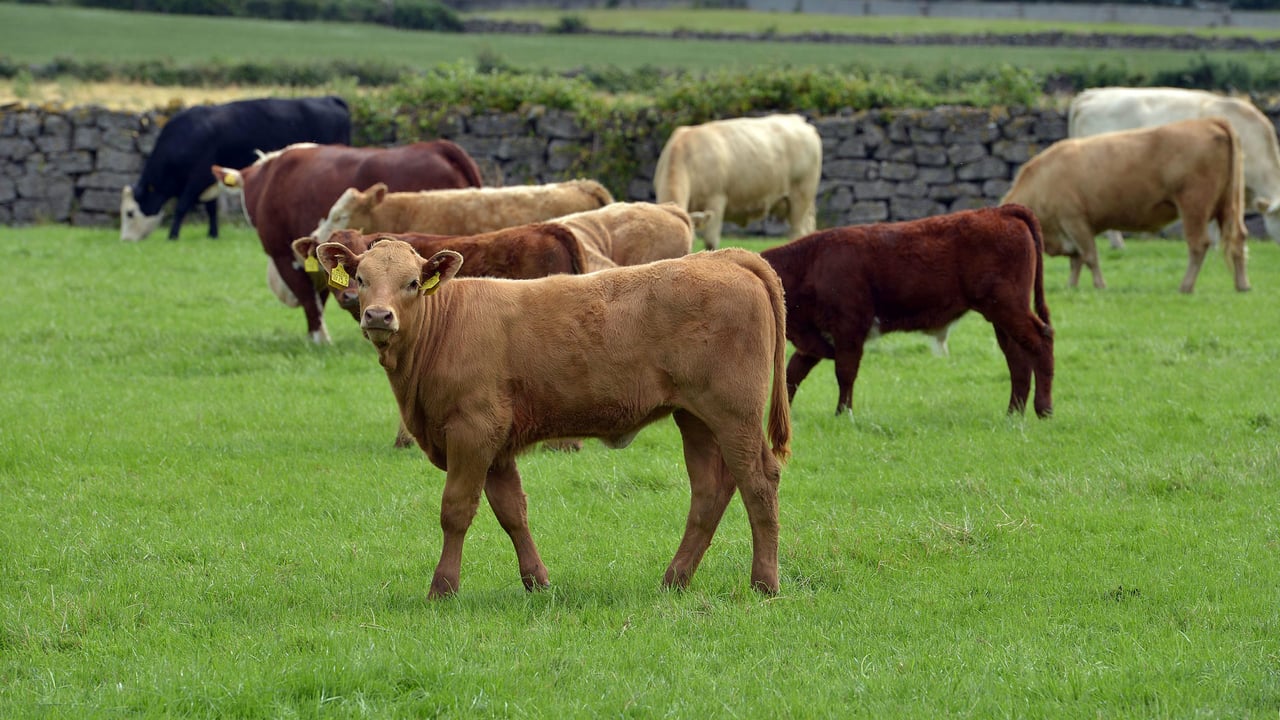LMC to participate in NI's first Food Strategy Framework consultation
The Livestock and Meat Commission (LMC) for Northern Ireland will be participating in the consultation that will lead to the creation of Northern Ireland’s first ever Food Strategy Framework.
Launched at this year’s Balmoral Show by agriculture minister Edwin Poots, this initiative - putting agriculture and food at the very heart of the Stormont Executive’s decision-making process - has the overarching theme: ‘Food at the Heart of Our Society – A Prospectus for Change’.
Six core issues have been identified as drivers for future policy-making decisions, where farming and food are concerned.
These are as follows:
LMC chief executive, Ian Stevenson, confirmed that Northern Ireland’s beef and lamb sectors interface directly with all of these priorities.
He explained: “Beef, for example, is an integral part of a healthy balanced diet. Uniquely, it contains high levels of naturally occurring vitamin B12 and the grass-fed nature of our beef also ensures it is high in omega 3 fatty acids.
“Beef and sheep are also major contributors to the local economy, both at a farm and processing level. In addition, 80% of the beef and lamb produced on local farms is destined for external and export markets," he added.
Stevenson continued: “Northern Ireland’s food culture is fast growing. One of the most positive developments to have come out of the Covid-19 lockdown was local consumers’ rejuvenated interest in cooking at home and the origins of their food.
”LMC intends to build on these positive, consumer-related trends into the future."
According to Stevenson, the sustainability of the beef and sheep management systems adopted on farms across Northern Ireland speaks for themselves.
He said: “Our cattle and sheep are unique in converting grass, a resource that cannot be utilised directly by humans, into human edible protein of the highest quality that can deliver nutrition and sustenance to populations around the world.
“Meanwhile our beef cattle and sheep are helping to deliver, day-in / day-out, an environment and a countryside that is the envy of the world.”
Central to all of these fundamentally important issues for beef and sheep has been the ongoing impact of the farm quality assurance scheme (FQAS).
Stevenson continued: “FQAS delivers in so many ways for the beef and lamb industries. It complements Northern Ireland’s renowned livestock traceability system, it sets the threshold for the environmental standards expected of farmers while also underpinning the health, safety and animal welfare standards that are now the norm on our farms.
“Looking to the future, farmers must achieve the economic and environmental sustainability levels that will be needed to remain viable. FQAS will continue to play a key role in this context.”
Stevenson continued: “LMC welcomes the opportunity to participate in the ongoing consultation process associated with the new Food Strategy Framework.
“The commission fully recognises the benefits of putting food, and how it is produced, at the very centre of future Executive decision making.
“We do this through our work with schools and the myriad of consumer-focused campaigns and events that we organise throughout the year, where FQAS beef and lamb are concerned," he added.
"We are a fundamental part of the UK food supply, and it is important that this Food Strategy Framework underpins Northern Ireland’s key position in the security of UK food supply in the decades ahead.
“Coordinating all of this interconnected effort in ways that deliver more effectively for society makes total sense. This will be the key message that LMC will be communicating courtesy of its submission to the Food Strategy Framwork consultation," Stevenson concluded.





